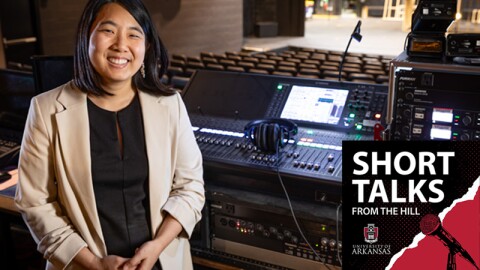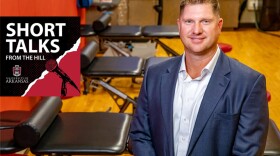-
Janine Chow, an assistant professor of theater, talks about how sounds help tell a story and set the mood in the theater.
-
Aranyak Goswami, an assistant professor in animal science, discusses his work in computational biology.
-
Grant Shields, an assistant professor of pyschology science, explains why stress makes us hungry for unhealthy foods.
-
Today's Sound Perimeter presents two pieces that reflect one another across time: Frédéric Chopin’s Mazurka in A minor, Op. 17 No. 4, and Caroline Shaw’s Gustave Le Gray , which reimagines and reframes Chopin’s melody through a contemporary lens.
-
Both composers in today's episode remind us how Latin America has reimagined European traditions, transforming them into something vibrant, soulful, and entirely its own.
-
R.J. Elbin, an an associate professor of exercise science and director of the Office for Sports Concussion Research, discusses targeted concussion treatment.
-
Today's Sound Perimeter, Postcard from Mexico City, written as host Lia Uribe's present to you, after a short visit to Mexico this past week. Listen across three vibrant voices: Guadalupe Perales’ Intertwined: Color Changes for bassoon duo, Nubia Jaime Donjuan’s danzón Frida, and Andrea Sarahi’s “Piece for Bassoon Solo” from Calladita: Five Pieces About Violence.
-
Jessica Fugitt, director of the Psychology Clinic, talks about the need for more high-quality, affordable mental health care in Arkansas and across the country.
-
Today's Sound Perimeter includes two journeys of motion and momentum: Gity Razaz’s 'The Strange Highway', racing forward with eight cellos like headlights through shifting landscapes; then a cello quartet in Carlos Gardel’s “Por una cabeza” leaning into tango’s sway, where a heartbeat rhythm meets a bittersweet tune.
-
Rain is the guiding theme in today's Sound Perimeter, a symbol of reflection, renewal and emotional depth.
-
Rachel Debuque, director of the School of Art, discusses their mission to promote the arts across Arkansas.
-
Rachel Sullivant and Will Foster talk about the Entreprenuer Law Project, which offers pro bono legal advice to small businesses across Arkanas.













